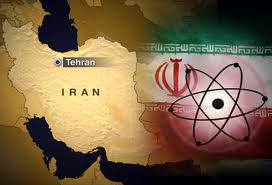 As the Obama administration makes a case for punitive airstrikes on the Syrian government, its strongest card in the view of some supporters of a military response may be the need to send a message to another country: Iran. If the United States does not enforce its self-imposed “red line” on Syria’s use of chemical weapons, this thinking goes, Iran will smell weakness and press ahead more boldly in its quest for nuclear weapons.
As the Obama administration makes a case for punitive airstrikes on the Syrian government, its strongest card in the view of some supporters of a military response may be the need to send a message to another country: Iran. If the United States does not enforce its self-imposed “red line” on Syria’s use of chemical weapons, this thinking goes, Iran will smell weakness and press ahead more boldly in its quest for nuclear weapons.
But that message may be clashing with a simultaneous effort by American officials to explore dialogue with Iran’s moderate new president, Hassan Rouhani, in the latest expression of Washington’s long struggle to balance toughness with diplomacy in its relations with a longtime adversary.
Two recent diplomatic ventures have raised speculation about a possible back channel between Washington and Tehran. Last week, Jeffrey Feltman, a high ranking State Department official in President Obama’s first term who is now a senior envoy at the United Nations, visited Iran to meet with the new foreign minister, Mohammad Javad Zarif, and discussed possible reactions to an American airstrike in Syria.
At the same time, the sultan of Oman, who has often served as an intermediary between the United States and Iran, was in Tehran meeting with Iran’s supreme leader, Ayatollah Ali Khamenei.
Neither Mr. Feltman nor Sultan Qaboos bin Said al Said of Oman has said anything about carrying messages between the two governments. Still, those overtures, along with some surprisingly mild noises from Iranian leaders, have raised hopes that Washington may be able to thread the needle — to strike Syria without compromising efforts toward an Iranian-American détente before meetings at the United Nations General Assembly this month.
Those hopes may well be premature: even if Mr. Rouhani and his foreign minister are eager for a deal ending the dispute over the future of Iran’s nuclear program, it is far from clear that they would be able to deliver one. Negotiations have been stalled since last year, and final authority on foreign policy rests with Ayatollah Khamenei. The Iranian president’s hand, whatever his politics, is weakened further during national security crises, analysts say, and hard-liners are likely to be empowered.
Like Mr. Obama, Mr. Rouhani — who has declared his goal of resolving tensions with the West and bringing “more transparency” to nuclear talks — is vulnerable to domestic conservatives, who still blame him for having signed an agreement in 2003 opening Iran to United Nations inspectors.
“I am convinced that Rouhani and Zarif want to overcome the hostility between the U.S. and Iran, but a military strike on Syria could be a spoiler,” said Hossein Mousavian, a former nuclear negotiator for Iran who is now a visiting scholar at Princeton University.
Even as Secretary of State John Kerry worked to build support for a strike, his Iranian counterpart, Mr. Zarif, known as a moderate who hopes for dialogue, seemed to be working to avert one, declaring in an interview on Sunday that Iran warned the United States last year about chemical weapons getting into the hands of Syrian rebels. On Monday, he even tried to suggest that Mr. Obama was closer to his way of thinking, saying the American president was being pushed toward war by hard-liners in his own government.
Nuclear weapons aside, the debate over chemical weapons has raised questions about the strength of Iran’s commitment to the government of President Bashar al-Assad of Syria. Iran suffered terrible losses to chemical weapon strikes during its decade-long war with Iraq in the 1980s, and the issue is a delicate one for many Iranians. Mr. Rouhani aroused some controversy last week by strongly condemning the use of chemical weapons in Syria on his English-language Twitter feed, without saying who used them.
Mr. Zarif made similar comments on his Facebook page, and others went further, including a former Iranian diplomat who suggested that Iran should not put all its eggs in one basket. A former president of Iran, Ali Akbar Hashemi Rafsanjani, was quoted in Iranian state media accusing Mr. Assad of using chemical weapons on his own people, though the government later disavowed those comments.
But Syria remains an essential ally for Iran, and a crucial link with Hezbollah, the Shiite movement based in Lebanon. There is no sign that Iran’s leaders are backing off; an Iranian delegation visited Mr. Assad in Damascus on Sunday to reaffirm its country’s commitment. But with the Iranian economy in tatters, the military support to Syria is costly.
NY Times

Leave a Reply
You must be logged in to post a comment.